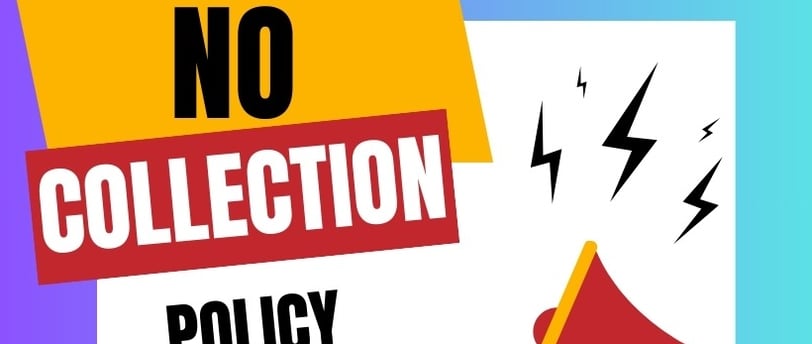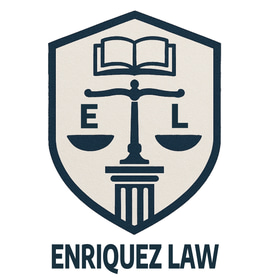Debunking the DepEd "No Collection Policy": A Deep Dive into Philippine Education Laws
This article debunks the common misconception of a blanket "no collection policy" in Philippine public schools, revealing a nuanced reality shaped by decades of evolving education laws. It clarifies which fees are prohibited, voluntary, or permissible across different grade levels, empowering stakeholders with a deeper understanding of DepEd's collection guidelines.
5/26/20254 min read


The phrase "no collection policy" is often uttered in Philippine public schools, creating a general understanding that no fees should be collected from students. But is this really the case? Does a blanket prohibition truly exist, or is it a more nuanced policy often misunderstood? Let's peel back the layers of Philippine education laws to debunk the myth and clarify the reality of the DepEd's collection policies.
The journey to understanding this policy begins decades ago, with legislative acts that have shaped the current landscape.
The Genesis of "No Collection": From RA 4206 to RA 5546
On June 19, 1965, Republic Act No. 4206 was approved, aptly titled "An Act Prohibiting the Collection of Contributions from School Children of Public Primary and Intermediate Schools." This groundbreaking law explicitly banned contributions for various purposes, including the Red Cross, Anti-Tuberculosis, Parent-Teacher Associations, School Athletic Meets, and Medical and Dental Services. The crucial phrase here is "whether voluntary or otherwise," leaving little room for ambiguity. The sole exception at this time was membership drives of the Red Cross.
Just four years later, in 1969, Republic Act No. 5546 was enacted, an amendatory law that expanded the scope and refined the prohibitions. Entitled "AN ACT PROHIBITING THE SALE OF TICKETS AND/OR THE COLLECTION OF CONTRIBUTIONS FOR WHATEVER PROJECT OR PURPOSE FROM STUDENTS AND TEACHERS OF PUBLIC AND PRIVATE SCHOOLS, COLLEGES AND UNIVERSITIES," this law introduced several key changes:
Broader Scope: The phrase "for whatever purposes" replaced the enumeration of specific contributions, making the prohibition more encompassing. Critically, it retained the phrase "whether voluntary or otherwise."
Expanded Coverage: While RA 4206 focused on public primary and intermediate school children, RA 5546 extended its application to students and teachers of public and private schools, colleges, and universities. Yes, the "no collection policy" indeed extends to teachers!
However, as much as it expanded its application, RA 5546 also expanded the exemptions:
The prohibition explicitly did not cover membership fees of school children and students in the Red Cross, the Girl Scouts of the Philippines (GSP), and the Boy Scouts of the Philippines (BSP).
It also did not cover the contribution of parents and other donors for the support of barrio high schools. It should be noted that "Barrio High School" is formally defined by Republic Act No. 6054, also known as the Barrio High School Charter, which outlines them as high schools established in the rural "barrios" of the Philippines. This legal definition specifically excludes high schools maintained by the Bureau of Public Schools or Vocational Education, private high schools, and state university laboratory high schools.
The Arrival of Free Secondary Education and its Impact
Fast forward to May 26, 1988, with the enactment of Republic Act No. 6655, or the "Free Public Secondary Education Act of 1988." This was a pivotal moment. This law declared that public students enrolled in secondary courses across various types of schools (national and general comprehensive high schools, state colleges and universities, specialized schools, etc.) would be free from payment of tuition and other school fees.
However, it introduced a significant caveat that would become the source of much discussion: students would be free from these fees "except fees related to membership in the school community such as identification cards, student organizations and publication which may be collected."
This is where everything started to get more complicated. While the intent was to provide free education, this provision opened the door for certain "community-related" fees.
DepEd Order No. 19, S. 2008: The Modern Interpretation
The Department of Education's own policies further clarify and sometimes seemingly contradict the spirit of the "no collection" policy. DepEd Order No. 19, S. 2008 is particularly relevant in the current context.
To summarize DO 19, S. 2008, it generally prohibits the collection of any contributions during the start of enrolment and any time of the school year for Preschool up to Grade 4. However, it makes allowances for authorized but voluntary contributions such as those for the BSP, GSP, Red Cross, Anti-TB Fund, and PTCA.
The critical distinction arrives with Grades V and beyond. For these grade levels, the prohibition on collections is notably different, though the provided text cuts off before detailing the specifics for these higher grades. (It's implied that for Grades V and beyond, the prohibition might be less stringent or there are more permissible collections).
The Reality: A Nuanced Policy, Not a Blanket Ban
So, is the DepEd "no collection policy" truly a no collection policy? Based on the historical laws and DepEd orders, the answer is a resounding no, it is not a blanket "no collection policy."
While the spirit of the law aims to minimize financial burden on students, particularly in primary and intermediate levels, exemptions and specific conditions have always existed and evolved.
Here's the debunked reality:
Early Grades (Preschool-Grade 4): Collections are generally prohibited, with very specific, voluntary exemptions for organizations like Red Cross, BSP, GSP, Anti-TB Fund, and PTCA.
Higher Grades (Grade 5 and beyond, including Secondary): The policy becomes more permissive. While tuition and most school fees are free in public secondary schools, specific fees related to school community membership (IDs, student organizations, publications) are allowed to be collected.
Voluntary vs. Mandatory: The crucial distinction often lies in the "voluntary" nature of the contributions. However, the line between truly voluntary and implicitly mandatory can sometimes be blurred in practice.
Teachers Included: It's important to remember that the prohibition on collections also extends to teachers, under RA 5546.
The Way Forward
Understanding these nuances is crucial for parents, students, teachers, and school administrators alike. The "no collection policy" is not an absolute, but a framework with historical roots, amendments, and specific guidelines.
Instead of a simple "no collection," it's more accurate to speak of a "regulated collection policy" or a "policy of prohibited and permissible collections." By being informed about the specifics of these laws and orders, stakeholders can ensure that collections are within legal bounds and truly voluntary where applicable, safeguarding the right to accessible education for all.
What are your thoughts on this complex policy?
Disclaimer: This blog post provides general information and should not be considered legal advice. It is always best to consult with a qualified legal professional for specific situations and legal guidance.
